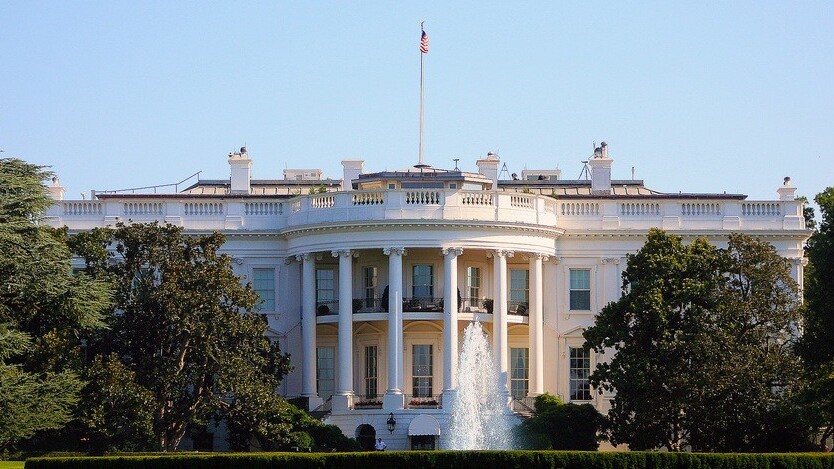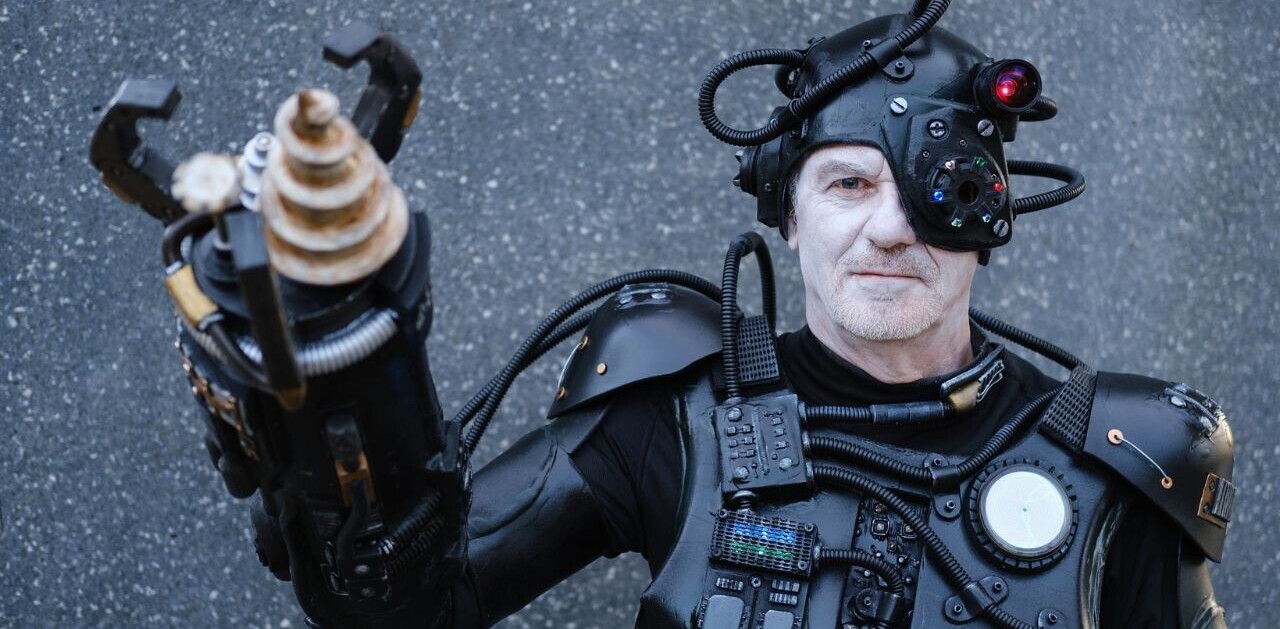
A White House petition to make unlocking cell phones legal again has received an official response. The US government is in “full support and are going to pass through legislation,” Sina Khanifar, the petition’s creator told TNW.
In the official response, the White House says it agrees with the 114,000+ Americans that signed the petition. Furthermore, the US government says tablets should be included too. Here is the reasoning:
And if you have paid for your mobile device, and aren’t bound by a service agreement or other obligation, you should be able to use it on another network. It’s common sense, crucial for protecting consumer choice, and important for ensuring we continue to have the vibrant, competitive wireless market that delivers innovative products and solid service to meet consumers’ needs.
This is particularly important for secondhand or other mobile devices that you might buy or receive as a gift, and want to activate on the wireless network that meets your needs — even if it isn’t the one on which the device was first activated. All consumers deserve that flexibility.
The response further says the Obama Administration “would support a range of approaches to addressing this issue, including narrow legislative fixes in the telecommunications space that make it clear: neither criminal law nor technological locks should prevent consumers from switching carriers when they are no longer bound by a service agreement or other obligation.” This is a huge win for consumers and shows petitions on the US government’s website actually works.
Last but not least, the Federal Communications Commission (FCC) is backing the new initiative. FCC Chairman Genachowski issued the following statement (PDF):
The Copyright Office of the Library of Congress recently reversed its longstanding position and stated it is a violation of the Digital Millennium Copyright Act for consumers to unlock new mobile phones, even those outside of contract periods, without their wireless providers’ permission, and that consumers are subject to criminal penalties if they do. From a communications policy perspective, this raises serious competition and innovation concerns, and for wireless consumers, it doesn’t pass the common sense test. The FCC is examining this issue, looking into whether the agency, wireless providers, or others should take action to preserve consumers’ ability to unlock their mobile phones. I also encourage Congress to take a close look and consider a legislative solution.
Back in late January, a new US federal policy stating certain mobile phones could not be unlocked legally went into effect. Citizens doing so would be in violation of the Digital Millenium Copyright Act (DMCA).
The US Copyright Office says only owners of the software, which in almost all cases means the companies that make mobile operating systems like Apple, Google, and Microsoft, can unlock handsets. Many consumers disagree as they believe once they buy a phone they should be able to do whatever they want with the device, including unlocking it in order to switch carriers.
A petition was quickly launched in response. Less than two weeks ago, the petition passed the 100,000 signature mark, requiring the US government to issue an official response.
For reference, here’s the petition’s full description:
The Librarian of Congress decided in October 2012 that unlocking of cell phones would be removed from the exceptions to the DMCA. As of January 26, consumers will no longer be able unlock their phones for use on a different network without carrier permission, even after their contract has expired.
Consumers will be forced to pay exorbitant roaming fees to make calls while traveling abroad. It reduces consumer choice, and decreases the resale value of devices that consumers have paid for in full. The Librarian noted that carriers are offering more unlocked phones at present, but the great majority of phones sold are still locked.
We ask that the White House ask the Librarian of Congress to rescind this decision, and failing that, champion a bill that makes unlocking permanently legal.
Here’s the full response:
Thank you for sharing your views on cell phone unlocking with us through your petition on our We the People platform. Last week the White House brought together experts from across government who work on telecommunications, technology, and copyright policy, and we’re pleased to offer our response.
The White House agrees with the 114,000+ of you who believe that consumers should be able to unlock their cell phones without risking criminal or other penalties. In fact, we believe the same principle should also apply to tablets, which are increasingly similar to smart phones. And if you have paid for your mobile device, and aren’t bound by a service agreement or other obligation, you should be able to use it on another network. It’s common sense, crucial for protecting consumer choice, and important for ensuring we continue to have the vibrant, competitive wireless market that delivers innovative products and solid service to meet consumers’ needs.
This is particularly important for secondhand or other mobile devices that you might buy or receive as a gift, and want to activate on the wireless network that meets your needs — even if it isn’t the one on which the device was first activated. All consumers deserve that flexibility.
The White House’s position detailed in this response builds on some critical thinking done by the President’s chief advisory Agency on these matters: the Department of Commerce’s National Telecommunications and Information Administration (NTIA). For more context and information on the technical aspects of the issue, you can review the NTIA’s letter to the Library of Congress’ Register of Copyrights (.pdf), voicing strong support for maintaining the previous exception to the Digital Millennium Copyright Act (DMCA) for cell phone carrier unlocking.
Contrary to the NTIA’s recommendation, the Librarian of Congress ruled that phones purchased after January of this year would no longer be exempted from the DMCA. The law gives the Librarian the authority to establish or eliminate exceptions — and we respect that process. But it is also worth noting the statement the Library of Congress released today on the broader public policy concerns of the issue. Clearly the White House and Library of Congress agree that the DMCA exception process is a rigid and imperfect fit for this telecommunications issue, and we want to ensure this particular challenge for mobile competition is solved.
So where do we go from here?
The Obama Administration would support a range of approaches to addressing this issue, including narrow legislative fixes in the telecommunications space that make it clear: neither criminal law nor technological locks should prevent consumers from switching carriers when they are no longer bound by a service agreement or other obligation.
We also believe the Federal Communications Commission (FCC), with its responsibility for promoting mobile competition and innovation, has an important role to play here. FCC Chairman Genachowski today voiced his concern about mobile phone unlocking (.pdf), and to complement his efforts, NTIA will be formally engaging with the FCC as it addresses this urgent issue.
Finally, we would encourage mobile providers to consider what steps they as businesses can take to ensure that their customers can fully reap the benefits and features they expect when purchasing their devices.
We look forward to continuing to work with Congress, the wireless and mobile phone industries, and most importantly you — the everyday consumers who stand to benefit from this greater flexibility — to ensure our laws keep pace with changing technology, protect the economic competitiveness that has led to such innovation in this space, and offer consumers the flexibility and freedoms they deserve.
R. David Edelman is Senior Advisor for Internet, Innovation, & Privacy
Khanifar gave TNW the following statement in regards to the White House’s response:
A little earlier I received a call from David Edelman at the White House, and he gave me the news. I’m really glad to see the White House taking action on an issue that’s clearly very important to people. As the White House said in the response, keeping unlocking legal is really “common sense,” and I’m excited to see them recognizing this. David was enthusiastic about getting this fixed as quickly as possible.
This is a big victory for consumers, and I’m glad to have played a part in it. A lot of people reacted skeptically when I originally started the petition, with lots of comments to the effect of “petitions don’t do anything.” The optimist in me is really glad to have proved them wrong. The White House just showed that they really do listen, and that they’re willing to take action.
While I think this is wonderful, I think the real culprit here is Section 1201 of the DMCA, the controversial “anti-circumvention provision.” I discussed with the White House the potential of pushing to have that provision amended or removed, and they want to continue that conversation. I’ll have exciting news on the campaign to make this happen tomorrow.
A job well done, if we may say so ourselves.
Image Credit: Trevor McGoldrick/Flickr
Get the TNW newsletter
Get the most important tech news in your inbox each week.





